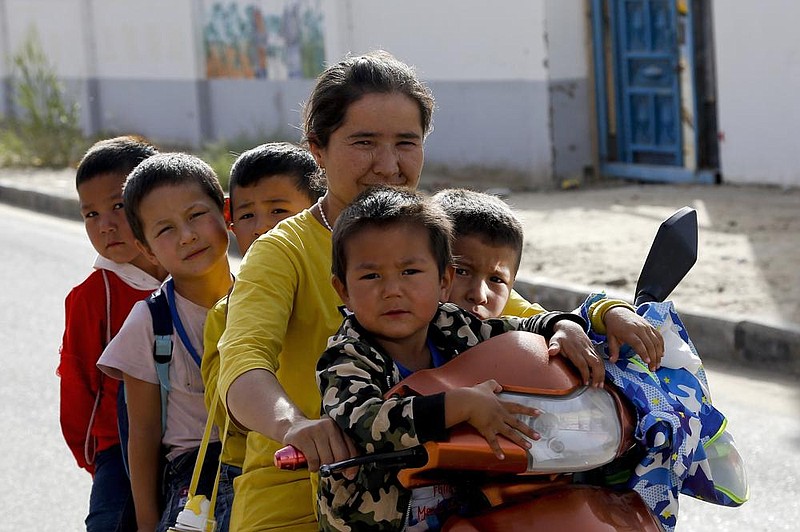The Chinese government is taking draconian measures to slash birth rates among Uighurs and other minorities as part of a sweeping campaign to curb its Muslim population, even as it encourages some of the country's Han majority to have more children.
While individual women have spoken out before about forced birth control, the practice is far more widespread and systematic than previously known, according to an AP investigation based on government statistics, state documents and interviews with 30 ex-detainees, family members and a former detention camp instructor. The campaign over the past four years in the far west region of Xinjiang is leading to what some experts are calling a form of "demographic genocide."
The state regularly subjects minority women to pregnancy checks, and forces intrauterine devices, sterilization and even abortion on hundreds of thousands, the interviews and data show. Even while the use of IUDs and sterilization has fallen nationwide, it is rising sharply in Xinjiang.
The population control measures are backed by mass detention both as a threat and as a punishment for failure to comply. Having too many children is a major reason people are sent to detention camps, the AP found, with the parents of three or more ripped away from their families unless they can pay huge fines.
Birth rates in the mostly Uighur regions of Hotan and Kashgar plunged by more than 60% from 2015 to 2018, the latest year available in government statistics. The hundreds of millions of dollars the government pours into birth control have transformed Xinjiang from one of China's fastest-growing regions into one of its slowest in just a few years, according to new research obtained by The Associated Press in advance of publication by China scholar Adrian Zenz.
[Video not showing up above? Click here to watch » https://www.youtube.com/watch?v=exAbNOo0Azc]
"This is part of a wider control campaign to subjugate the Uighurs," said Zenz, an independent contractor with the nonprofit Victims of Communism Memorial Foundation in Washington.
The Chinese Foreign Ministry and the Xinjiang government did not respond to multiple requests for comment. However, Beijing has said in the past that the new measures are merely meant to be fair, allowing both Han Chinese and ethnic minorities the same number of children.
Under China's now-abandoned "one child" policy, the authorities had long encouraged, sometimes forced, contraceptives, sterilizations and abortions on Han Chinese. But minorities were allowed two children -- three if they came from the countryside.
That changed under President Xi Jinping, China's most authoritarian leader in decades. Soon after he came to power, the government revised birth regulations so Xinjiang's Han Chinese could have two or three children, just like minorities.
While equal on paper, in practice Han Chinese are largely spared the abortions, sterilizations, IUD insertions and detentions for having too many children that are forced on Xinjiang's other ethnicities, interviews and data show. Some rural Muslims were punished even for having the three children allowed by the law.
Fifteen Uighurs and Kazakhs told the AP they knew people interned or jailed for having too many children. Many received years, even decades in prison.
Once in the detention camps, women are subjected to forced IUDs and what appear to be pregnancy prevention shots, interviews and data show.
One former detainee, Tursunay Ziyawudun, said she was injected until she stopped having her period and kicked repeatedly in the lower stomach during interrogations. She now can't have children and often doubles over in pain, bleeding from her womb, she said. Ziyawudun said women at her camp were made to undergo gynecology exams and get IUDs, and their "teacher" told them they would face abortions if found pregnant.
In 2014, just over 200,000 IUDs were inserted in Xinjiang. By 2018, that jumped more than 60 percent to nearly 330,000 IUDs. At the same time, IUD use fell sharply elsewhere in China, as many women began getting the devices removed.
Chinese health statistics also show a sterilization boom in Xinjiang.
Budget documents obtained by Zenz show that starting in 2016, the Xinjiang government began pumping tens of millions of dollars into a birth control surgery program. Even while sterilization rates plummeted in the rest of the country, they surged sevenfold in Xinjiang from 2016 to 2018, to more than 60,000 procedures.










